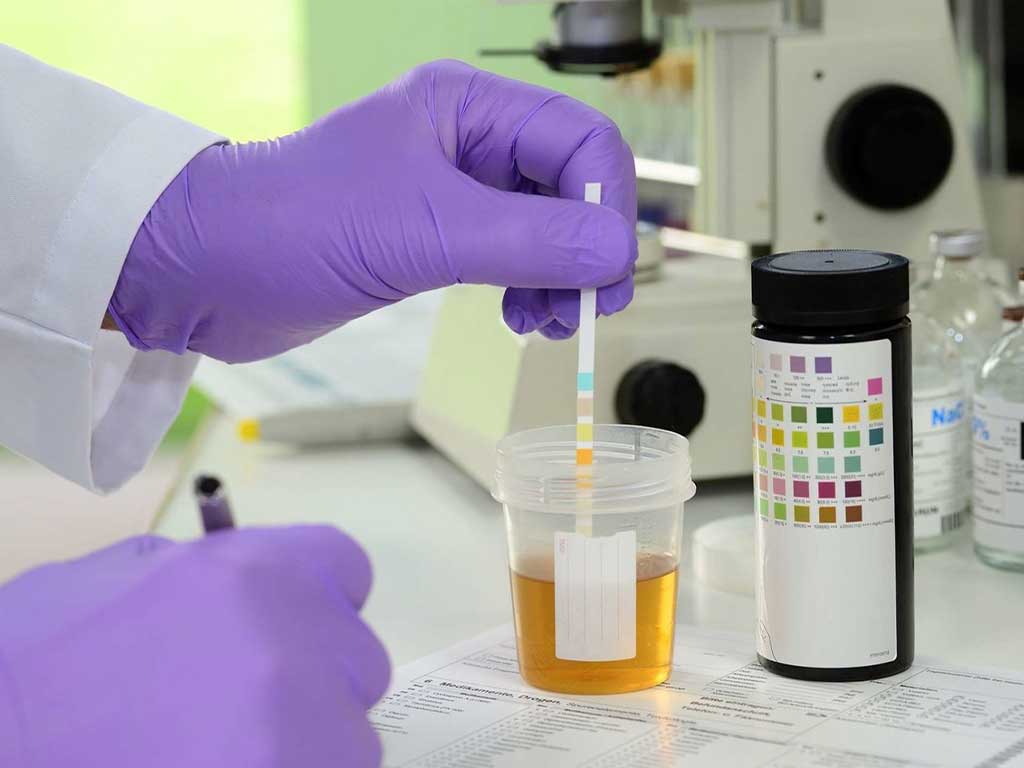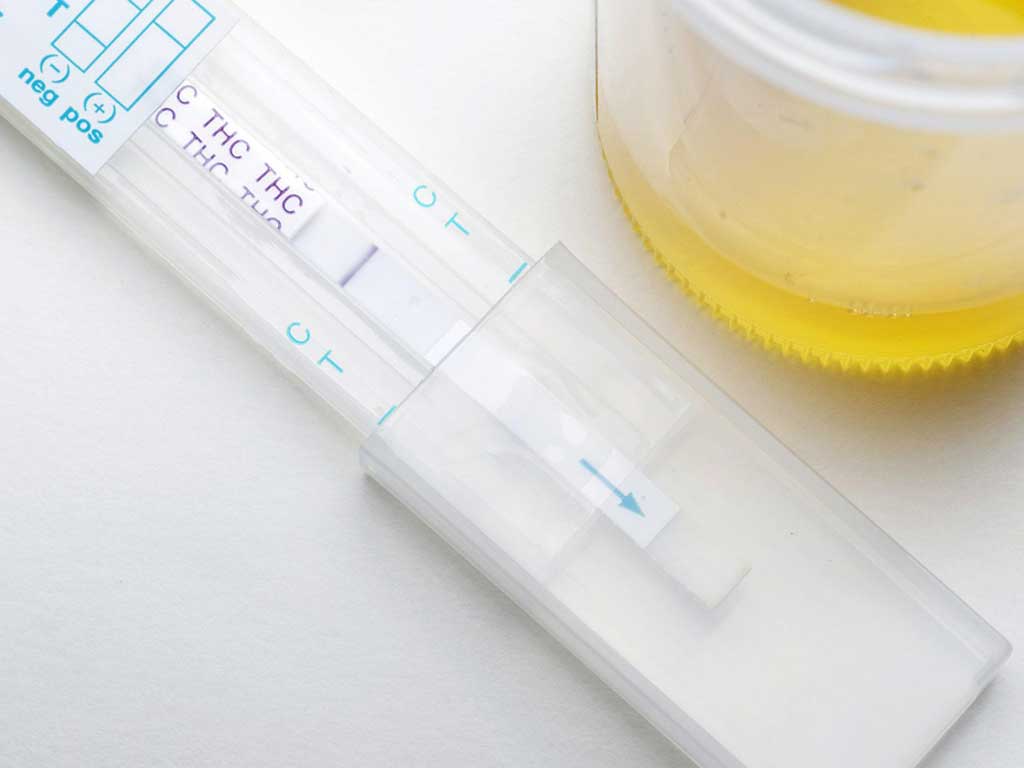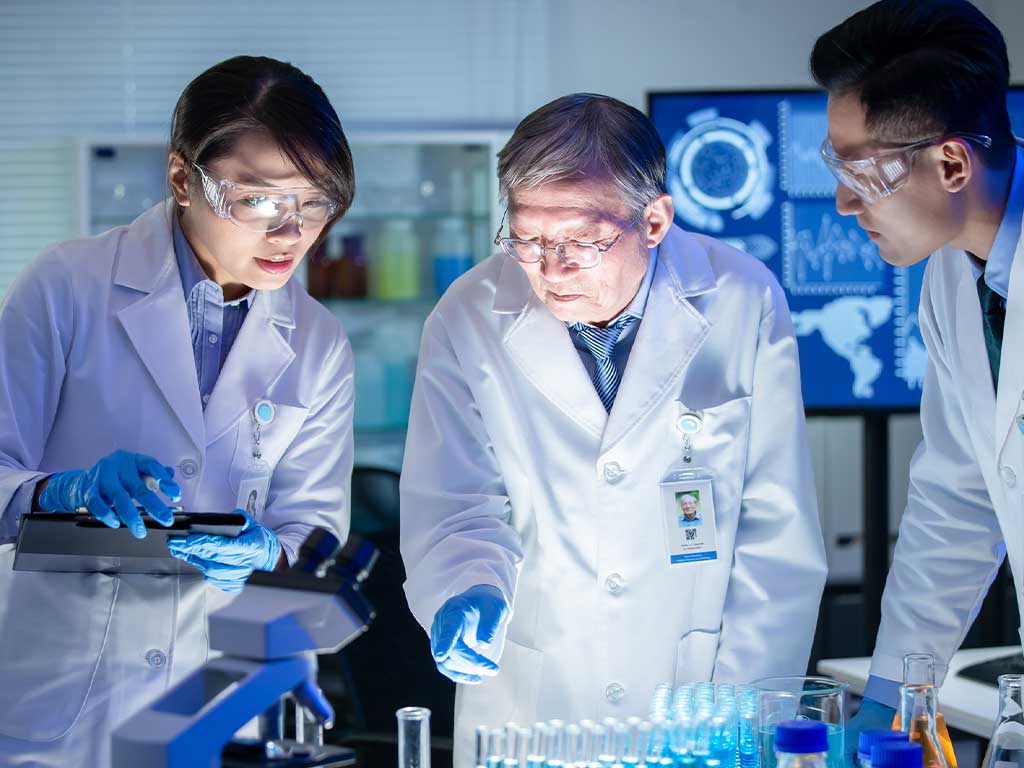Urine Drug Test: A Complete Guide of What to Expect
21 February, 2024
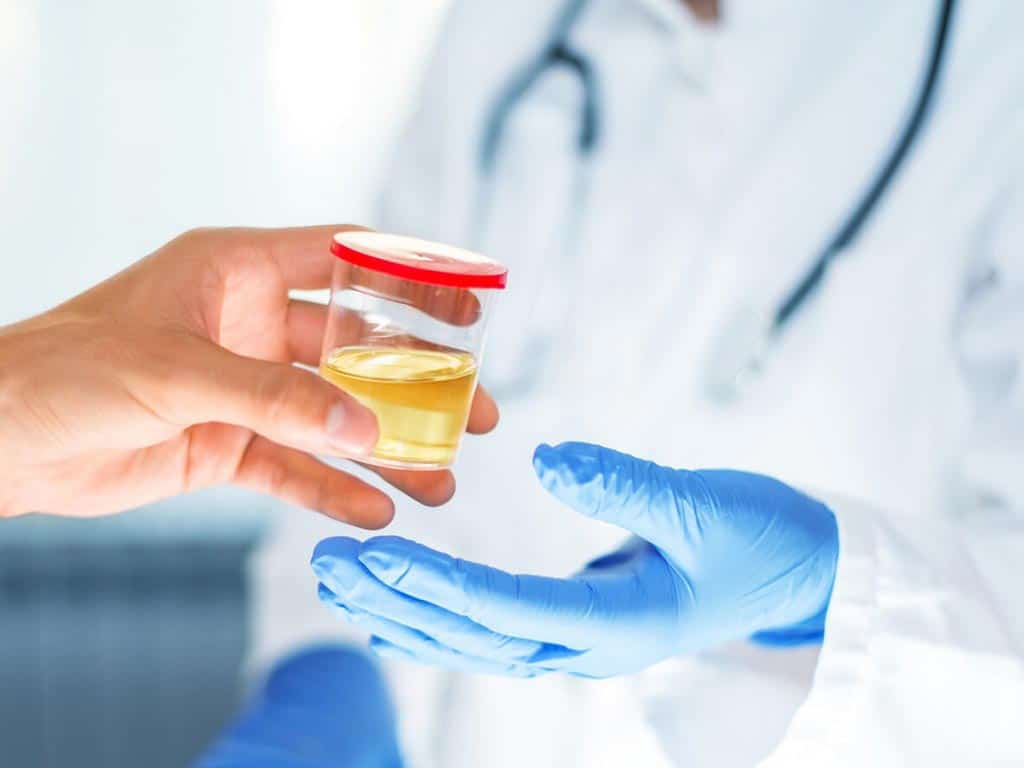
Urine drug testing is a common method for detecting the presence of various substances in a person. Undergoing this procedure is often required in certain situations, whether for employment purposes, legal reasons, or medical assessments. This aims to find out if a person is under the influence of drugs within a specified period or determine if they have substance abuse issues. Nevertheless, it is imperative to know the procedures and guidelines when it comes to drug testing.
Illicit substances refer to a wide variety of drugs, including illegal drugs, prescription drug abuse, and misuse of alcohol. They are heavily controlled or prohibited by law due to their potential for abuse and harm. In addition, the abuse of illegal drugs has far-reaching implications, affecting not only individuals but also communities as a whole. This article will give a complete guide to urine testing, procedures, and where to buy drug test kits.
Jump to a Section:
- What Is a Urine Drug Test?
- How Do Urine Drug Tests Work?
- Purpose of Urine Drug Testing
- How Accurate Are Urine Drug Tests?
- Detection Times for Urine Drug Tests
- Urine Drug Testing Procedure
- Benefits of Urine Drug Tests
- Urine Drug Test Laboratory Analysis
- Where to Buy Urine Drug Test Kits in Australia
- The SureStep 6-in-1 EZ Split Urine Drug Test Kit
What Is a Urine Drug Test?
A urine drug test is a medical procedure that looks for the presence of drugs or their metabolites. It involves collecting a sample of urine from the individual and analysing it using various techniques. The test is common in various settings, including workplaces, schools, legal settings, and rehabilitation centres.
Many employers and organisations prefer urine testing because it is non-invasive, easy to administer, and provides quick results. This test often uses urine test kits, which are portable and affordable. Hence, it can be done on-site, minimising the need for laboratory services. However, a laboratory urinalysis drug test may still be essential for the confirmation of some samples.
A urine drug screen can provide evidence of drug use, usually for a few hours to days after consumption. The results of the test can have significant consequences, such as facing work suspensions, termination, or legal repercussions. Therefore, it is important for individuals to be aware of the risks of illegal drug use and the impacts of failing the test.
What Can It Detect?
- Marijuana (THC): Also called weed, marijuana is a psychoactive drug used for various medicinal purposes. However, misuse can have severe mind-altering effects and other health risks.
- Cocaine: A power stimulant drug that is often used recreationally for its euphoric and rewarding effects.
- Amphetamines: Stimulant drugs for treating Attention Deficit Hyperactivity Disorder (ADHD) and narcolepsy. They can be highly addictive and have serious side effects.
- Opioids: A class of drugs for pain relief. Strong painkillers have a high tendency to be addictive and cause an overdose.
- Benzodiazepines: Central nervous system depressants used to treat anxiety, insomnia, and seizures. Misuse can lead to dependence and overdose.
How Do Urine Drug Tests Work?
Urine drug tests use various techniques to detect specific drugs and drug metabolites in the urine sample. The test works on the principle that when a person ingests drugs, their body metabolises them into specific compounds and eliminates them through urine. Additionally, the byproducts or metabolites can show up in urine for several days.
A urine drug screen typically utilises immunoassay technology to detect substances in the sample. This technique involves using antibodies that bind to specific drug metabolites, producing a visible reaction. These reactions may manifest in a colour change or lines in the test panel. If the initial test result is positive, confirmatory testing is usually necessary.
In confirmatory testing, advanced laboratory techniques provide accurate identification and quantitation of drugs in urine. These techniques include Gas Chromatography-Mass Spectrometry (GC-MS) or Liquid Chromatography-Mass Spectrometry (LC-MS). They work by separating and identifying specific compounds in the sample, providing a more precise result. Confirmatory testing is essential for legal cases or when the initial test results are inconclusive.
Different Types Available
Urine test kits come in various forms, such as dipstick tests, cup tests, and cassette tests. Dipstick tests involve dipping a strip with reactive agents into the urine sample and waiting for lines to appear. On the other hand, integrated cup tests are self-contained and allow for specimen collection and analysis in one container.
Meanwhile, cassette tests involve putting a few drops of urine on a test cartridge and waiting for results to appear. Moreover, a urine analyser is a device used in laboratories or clinical settings to provide more detailed information about the concentration levels of drugs in the sample.

Purpose of Urine Drug Testing
Urine drug testing serves several purposes in various industries and settings. Firstly, it aids in promoting and maintaining safety in safety-critical areas like workplaces. By identifying individuals who may be under the influence of drugs, employers can take appropriate action to prevent any untoward incidents. This is especially important in industries involving the operation of equipment and vehicles, such as mining, transportation, and construction.
Secondly, it helps deter drug use and abuse. Knowing that they may be subject to random drug tests can discourage employees from engaging in drug use. Consequently, it can lead to a safer and more productive work environment. Drug testing also helps to identify any substance abuse issues early on, allowing employers or medical professionals to offer intervention or treatment assistance.
Lastly, companies conduct drug tests in compliance with federal and state regulations. These regulations help ensure that the working environment is free of preventable hazards like illicit drugs and alcohol. It also helps guarantee that employees are performing their duties safely and responsibly.
Ideal Applications
A urinalysis drug test is suitable in several situations. One of the main applications of this method is in pre-employment screening. Many companies require prospective employees to undergo the test as part of the hiring process. This helps ensure that new hires do not have substance abuse issues that could affect their performance and safety on the job.
Another common application is random testing. There is no prior announcement when conducting this test to monitor drug use. Furthermore, it is valuable in substance abuse treatment programs to monitor compliance and recovery progress. Finally, the test is useful in legal cases, such as probation or parole monitoring.
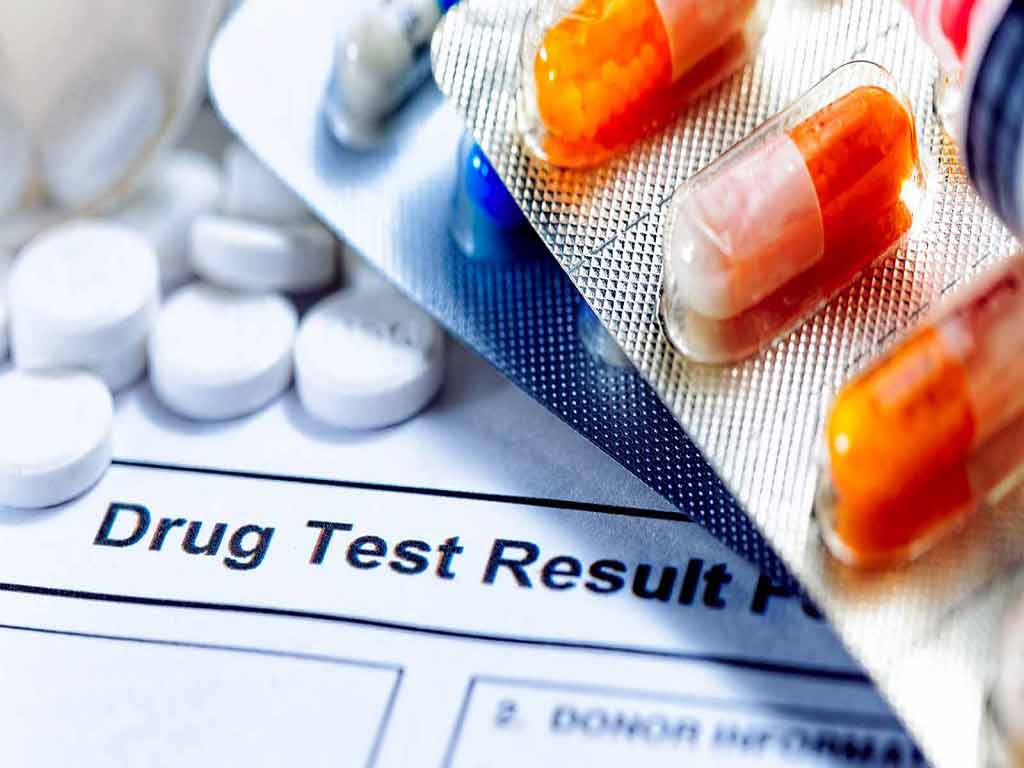
How Accurate Are Urine Drug Tests?
The accuracy of drug tests can vary depending on the type of test used, the sensitivity of the equipment, and other factors. One of the main factors to consider is the type of testing device. Urine drug testing kits are generally reliable when used correctly. However, they are often less accurate compared to laboratory testing because of a higher chance of false positives or false negatives.
On the other hand, GC-MS and LC-MS are considered the gold standard in confirmatory testing, providing highly accurate results. These advanced techniques are able to detect trace amounts of drugs in urine samples, ensuring precise outcomes. The results of this test are admissible in court and can help form a final verdict.
Moreover, various factors can affect the test accuracy, including the sample collection, cut-off levels, and the presence of interfering substances. For instance, improper collection techniques and handling may lead to contamination of the specimen. Additionally, certain over-the-counter medicines or prescription drugs may interfere with the test, leading to false-positive results.
Cut-Off Levels
Cut-off levels refer to the minimum concentration of a drug class that must be present to generate a positive result. This helps to differentiate between recent and non-recent drug use. Regulatory agencies like Australian Standards establish specific levels to ensure consistency throughout various industries. The following are the immunoassay screening cut-offs in urine:
- Amphetamine – 300ng/ml
- Methamphetamine – 300ng/ml
- Morphine – 300ng/ml
- Cocaine metabolites – 150ng/ml
- Benzodiazepine – 200ng/ml
- Cannabis – 50ng/ml
Laboratory cut-off levels for confirmation:
- Amphetamine-type substances – 150ng/ml
- Cocaine metabolites – 100ng/ml
- Benzodiazepine – 100ng/ml
- Cannabis – 15ng/ml
- Codeine – 300ng/ml
- Morphine – 300ng/ml
Detection Times for Urine Drug Tests
Generally, drugs in urine are detectable for up to 48 to 72 hours after use. However, the detection times can vary depending on the type of drug, amount of consumption, and other factors. Some substances may have longer detection periods than others. In particular, cocaine and opioids are detectable for up to 72 hours, while amphetamines are between two to five days.
Furthermore, benzodiazepines can show up in urine drug testing for up to seven days. In addition, marijuana or cannabis has the longest detection window of up to 25 days. The length of time it stays in the system depends on if the individual is an occasional or chronic user.
In comparison to other methods, urine tests have an extended window of detection. Saliva testing can trace drugs within 12 to 48 hours, and blood tests have a shorter window of 6 to 24 hours. Therefore, urine testing is suitable if a longer period is required. However, for a long-term drug use history of a person, hair testing would be more appropriate as it can detect substances within the past 90 days.
Factors Affecting Detection Times
Several factors can affect the detection windows of drugs in urine. Aside from the drug type, the frequency of use, metabolism rate, and hydration levels play a part as well. Individuals who take drugs frequently may have longer detection times due to the accumulation of substances in their system.
Moreover, metabolism can impact how quickly the body breaks down and eliminates drugs from the system. Hydration levels, weight, and age can also influence the rate at which substances are excreted through urine. Overall, there are many variables to consider, making it important for individuals to be aware of these factors when undergoing drug testing.
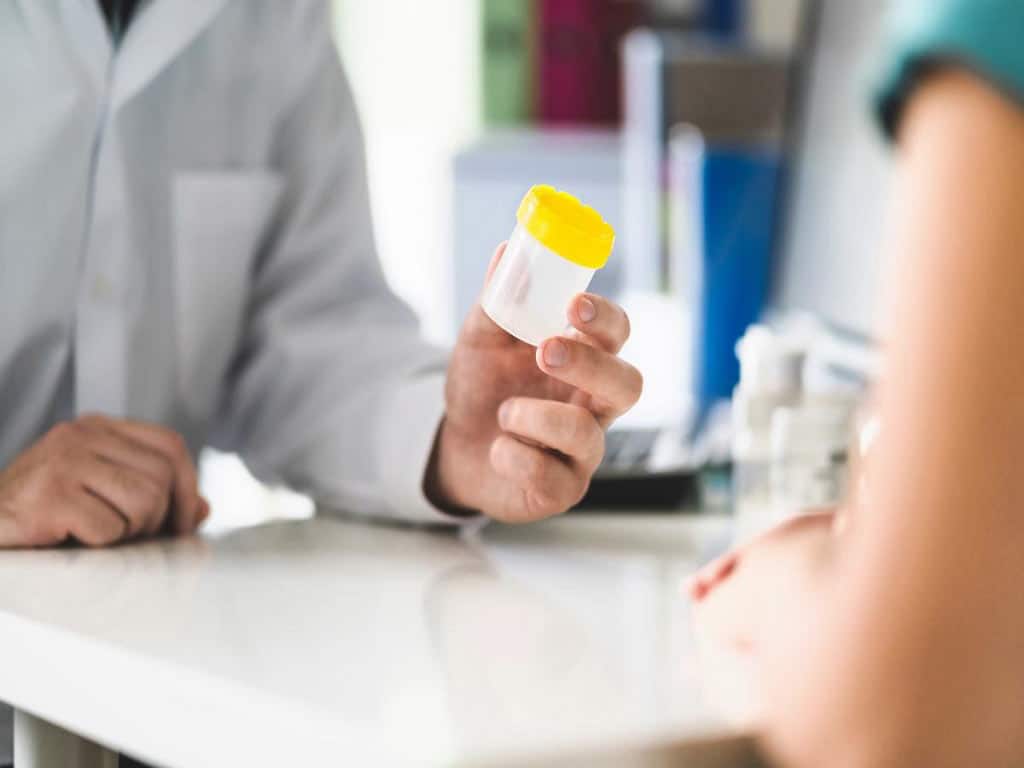
Urine Drug Testing Procedure
The urine drug testing procedure follows specific key steps to ensure accurate and reliable findings. The first stage is sample collection. A collector or employer provides a collection container to the individual to obtain a urine sample. After collection, the specimen is either processed on-site or sent to a laboratory for analysis.
The second stage involves proper sample labelling, storage, and transportation. These protocols help prevent contamination and tampering. Once in the lab, the specimen undergoes a series of analysis methods to screen for illicit substances. If the initial test is non-negative (drugs are detected), it proceeds to the confirmation testing stage. This involves more accurate and sophisticated techniques to identify the specific substance and amount.
Finally, a medical review officer (MRO) evaluates the test and reports the findings to the employer or individual. The MRO also probes the individual if there are any legitimate medical reasons for the positive result. It is important for employers to follow the guidelines in their workplace testing policies and obtain consent when conducting these tests.
Sample Collection Guidelines
Proper sample collection is essential to ensure the integrity of the test and prevent tampering. First and foremost, individuals must wash their hands and not use hand sanitisers or products containing alcohol. Then, the testing personnel provides instructions on how to collect urine, such as catching midstream to avoid any contaminants from the skin or genitals.
Subsequently, collectors must inspect the sample for any abnormalities, such as unusual colour or odour. The temperature of the sample should also fall within a certain range. Finally, proper labelling of the specimen is important to prevent mix-ups or errors during processing.
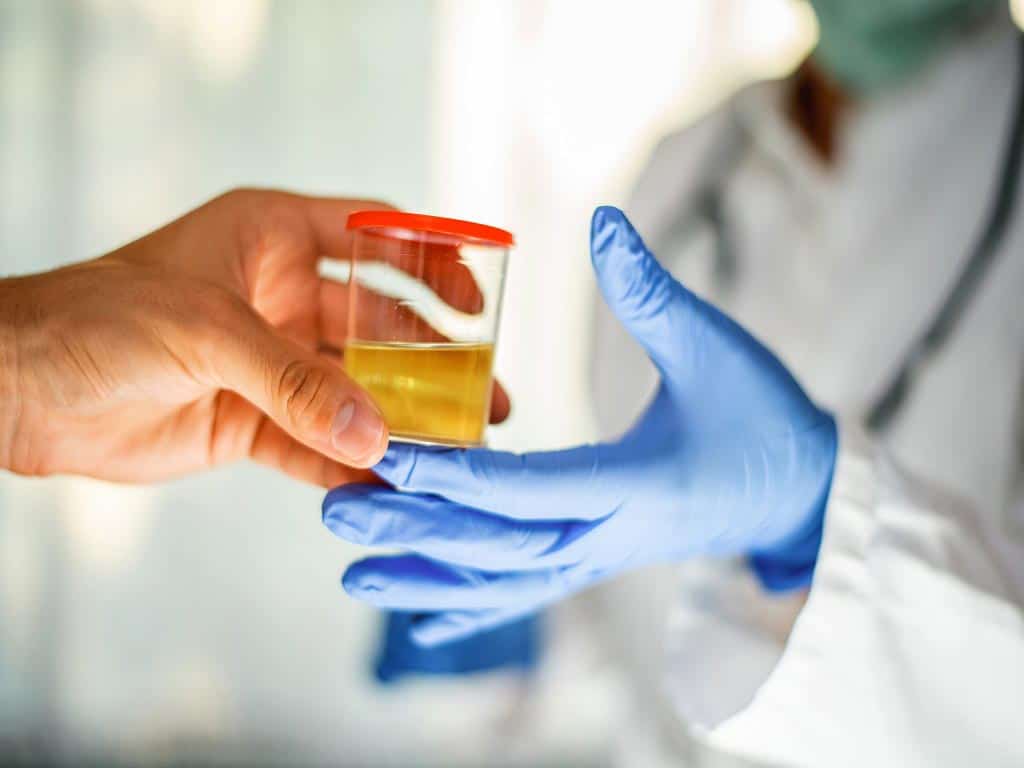
Benefits of Urine Drug Tests
Employers or organisations conduct regular urine drug tests because of the numerous benefits they offer. One of the primary benefits is ensuring a safe and drug-free environment. The ability of urine tests to detect substances for varying lengths of time can help determine impairments or abuse. This allows employers to identify individuals who are posing safety risks and prevent accidents.
Another benefit is the early detection of substance use disorders in employees. This enables employers to provide rehabilitation resources through an Employee Assistance Program (EAP). This program offers opportunities for affected individuals to seek help and support to overcome their addiction and improve their overall well-being. In addition, it allows them to keep their jobs.
Furthermore, routine tests help maintain productivity. Employees are less likely to engage in drug use and healthier habits, leading to increased efficiency and performance. As a result, it reduces absenteeism, employee turnover, and healthcare costs. Overall, it minimises the risk of accidents and injuries, deters drug abuse, improves productivity, and promotes a healthier lifestyle.
Advantages Over Other Methods
- Non-invasive testing: The sample collection procedure is quick, painless, and non-intrusive compared to blood tests.
- Extended detection window: Long detection times in urine allow employers or healthcare professionals to identify past drug use, which may still pose a safety hazard.
- Quick results: Urine drug screens can provide the results after a few minutes. Laboratory testing for urine is also relatively faster than blood or hair tests.
- Comprehensive detection range: It can detect a wide range of drugs, including both illegal and legal substances.
- Cost-effectivity: Urine testing kits are affordable and easily accessible. It allows individuals or companies to screen for drugs without the high cost.
Urine Drug Test Laboratory Analysis
Urine drug testing through laboratory analysis offers accurate results. Laboratories follow a strict chain of custody procedures to ensure the integrity of the samples and the reliability of the test. Firstly, it utilises more advanced technology like GC-MS to detect substances with greater sensitivity and specificity. This method helps in reducing false-positive results and provides a more detailed analysis.
Additionally, a urinalysis drug test follows preliminary testing if the initial results are positive or non-negative. It has lower cut-off levels than immunoassay screening tests, reducing the chance of testing positive after passive exposure to a drug. This minimises potential errors or false positives due to cross-reactivity or interference from other substances.
Moreover, in preliminary urine testing, the sample may be split for further evaluation. It allows testing centres to analyse the specimen in a laboratory setting without requiring new collection. In cases where confirmation is necessary, the laboratory can perform additional tests to confirm the presence of specific substances. This ensures a high level of accuracy and reliability in the results.
Screening vs Confirmatory Testing
Screening tests are usually the first step in drug detection. They are relatively quick and inexpensive, making them an efficient way to monitor drug use. However, it has several limitations, including providing qualitative results instead of exact amounts and a higher likelihood of false positives.
Confirmatory testing, on the other hand, involves more sophisticated techniques that minimise false readings or errors. It can also provide specific measurements of the drug levels in the system, allowing for a more detailed analysis. A downside of this method is that it is more time-consuming and costly due to the complex processes involved.
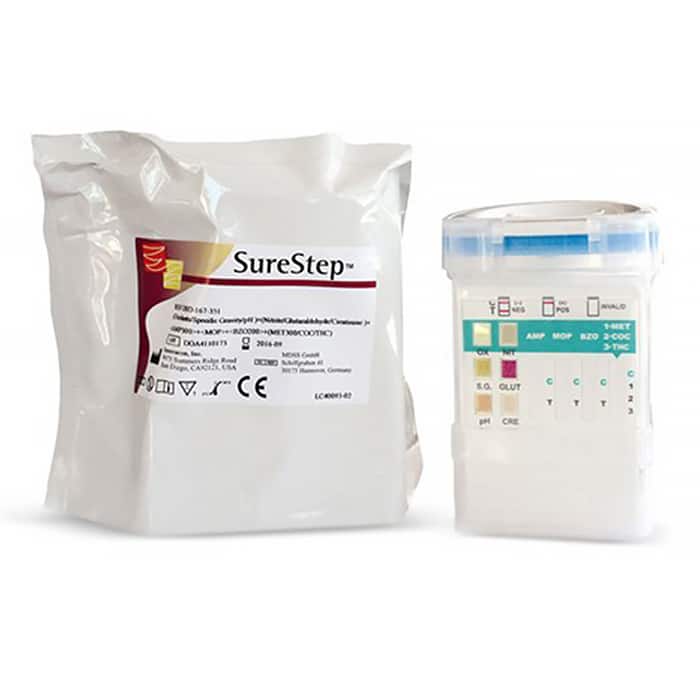
Where to Buy Urine Drug Test Kits in Australia
In Australia, urine drug test kits are readily available for purchase from a variety of sources. A common option is visiting a local pharmacy or drug store. These establishments carry a selection of test kits of different types, such as different numbers of panels, sensitivity, and costs. These choices will depend on the needs, preferences, and budgets of the individual or company.
Another option is to purchase test kits online. Numerous retailers and manufacturers offer the convenience of online shopping. They often have a wider selection of testing devices, including different brands. Furthermore, shopping online enables individuals to look at different websites and compare prices. Likewise, many retailers offer discreet shipping options for those who need privacy.
Specialised outlets like medical supply stores also offer many types of urine test kits. These stores cater to healthcare professionals, clinics, and businesses that require testing supplies in bulk or high quantities. They may provide discounts for bulk purchases and offer additional services like training on how to administer the tests properly.
Breathalysers Australia
Many people prefer online buying because of the convenience and variety of options available. Websites like Breathalysers Australia offer reliable testing devices such as the SureStep 6-in1 EZ Split Drug Test. Other types available are rapid saliva testing and breathalysers for alcohol screening.
Breathalysers Australia offers nationwide shipping with a 24-hour dispatch system. The drug test kits are Australian Standards or AS-certified, ensuring they meet the regulatory standards. These accreditations are essential in workplace settings to ensure the validity of the test results and compliance with occupational health and safety regulations. Purchasing from reputable sources guarantees quality and effectiveness.
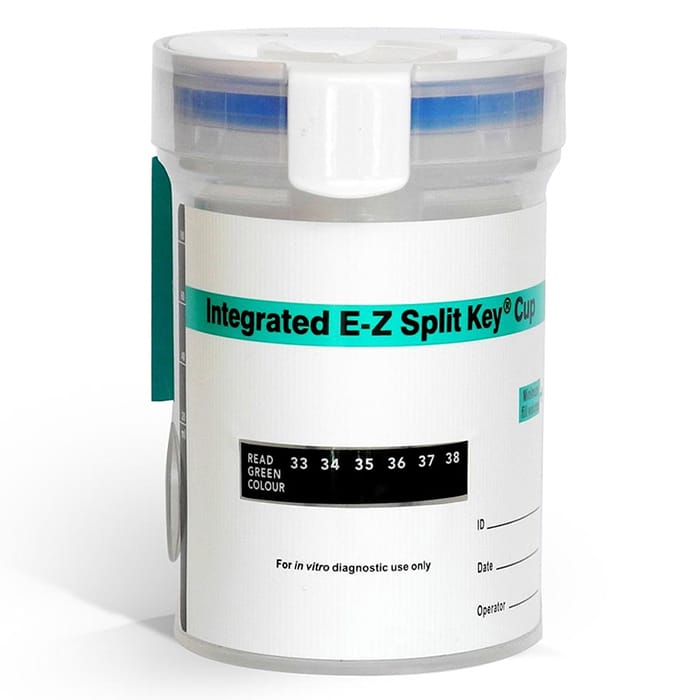
The SureStep 6-in-1 EZ Split Urine Drug Test Kit
The SureStep 6-in1 EZ Split Urine Drug Test Kit is an integrated urine-based device for personal or professional use. This can detect six common drugs of abuse in one kit, making it a cost-effective option for comprehensive screening. Additionally, it has an easy-to-use design, enabling efficient sample collection and analysis.
The test kit includes the necessary components for testing, so individuals do not need to purchase additional materials. It includes a sample cup and an adulteration test strip. The container has a no-leak design via the patented split-key system. It can also provide temperature verification for sample confirmation. Therefore, it is tamper-proof and easy to use.
To use the test kit, collect the urine sample and fill the cup to at least 1/3 full. Then, secure the specimen by pressing down the pull tab until a clicking sound is heard. Push the key into the socket to begin the test. The result is available in under five minutes, allowing for immediate action if needed.
Core Features of the SureStep 6-in-1 EZ Split
- The test kit has a patented Split Key System, allowing for both screening and confirmation testing.
- It has an integrated urine sample cup, meaning it does not need additional tools to analyse the specimen.
- Built-in 6-panel adulteration test.
- Built-in temperature checking for enhanced security. If the temperature is out of normal temperature ranges, the test may be invalid.
- The kit key allows for controlling test timings.
- It has a hinged lid with a seal design for a messy-free sample collection.
- It has a simple three-step procedure for an efficient testing process. It includes collecting urine, pushing the key, and reading the results in five minutes.
Conclusion
Overall, urine drug testing is a vital approach to detecting illicit substances and deterring drug abuse. It can trace a wide range of drugs within a 48 to 72-hour period or longer after consumption. The tests utilise various techniques to detect substances, such as immunoassay screening and GC-MS technology. Each method has different accuracy levels, sensitivity, and specificity. Nevertheless, it is easy to administer and provides quick and reliable results.
When undergoing the test, there are several key steps to remember. The initial screening process involves sample collection and qualitative analysis. If the test indicates drug presence, further laboratory evaluation is essential. Furthermore, it is crucial to follow proper testing protocols and ensure the integrity of the samples. For those looking to purchase urine testing kits, reputable online sources like Breathalysers Australia offer reliable options. The SureStep 6-in-1 EZ Split urine drug test kit is a user-friendly device and a cost-effective solution.






